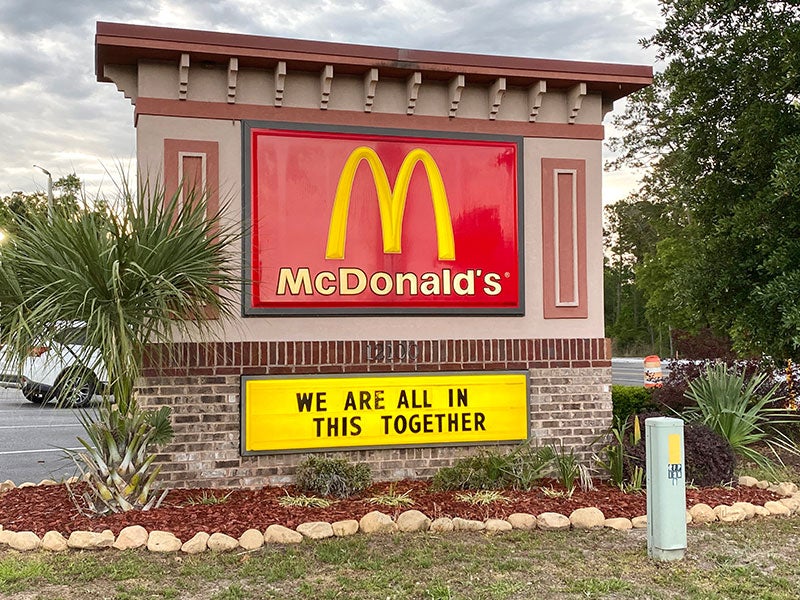
After a tough Q2, McDonald’s sees an opportunity to grow market share and accelerate recovery by bolstering its marketing spend.
McDonald’s will add $200 million in incremental marketing spend for the rest of the year across the United States and its top international markets, CEO Chris Kempczinski said during its earnings call Tuesday. The amount is equivalent to one full month of additional marketing support.
Plus, after cutting Q2 marketing spend by 70% in the United States, it will roll all of those funds over to Q3 and Q4, leading to a huge surge in marketing for the rest of the year. McDonald’s wanted to conserve its marketing spend until conditions improved. During Q2, one focus was offering “Thank You Meals” to frontline workers.
Now, it’s moving from its “defensive posture” in Q2 advertising to deploying a “marketing war chest” to gain market share. With consumer confidence waning, it will focus on McDonald’s affordability and value during a time of economic uncertainty, Kempczinski said.
McDonald’s business is showing signs of recovery to justify its increased ad investment. Its increase in marketing spend reflects recent months of sequential improvement in its sales. Q2 is likely the “trough” in McDonald’s performance, Kempczinski said.
For example, overall sales declined 39% year over year globally in April, followed by a 21% decline in May, followed by a 12% decline in June – significant improvement each month. By the end of the quarter, almost all restaurants had reopened.
The US market performed more strongly than McDonald’s global markets, and has even showed signs of improving year over year in July, after the quarter ended. Customer satisfaction reached “new highs” in the United States, and McDonald’s also saw strong, “significant” improvements in customer satisfaction globally.
Drive-thru has helped, especially in the United States where 95% of restaurants offer drive-thru (compared to 75% of global restaurants). Ninety percent of US sales were drive-thru. McDonald’s also reopened 2,000 US restaurant dining rooms before pausing its efforts as the US health situation worsened.
As McDonald’s eyes recovery, it will make changes that reflect consumer behavior shifts during the pandemic. Delivery sales are still extremely small in the United States, but it will be an area of focus moving forward along with drive-thru.
Breakfast, already a weak time of day for McDonald’s, has been disproportionately affected by changing commuting patterns. Weekends also perform worse than weekdays. And average check size increased by 30% as people place larger orders for their entire family, for example.
As McDonald’s prepares for a potentially extended pandemic, it will continue to adapt to these patterns. Two key points about the McDonald’s brand stand out, Kempczinski said. One, it can message about its affordability and value. Second, McDonald’s is known for its operational efficiency and strong supply chain, both of which came into play since the pandemic. It had 50 new safety changes in recent months and surfed above the supply chain disruptions that affected many other large companies and consumers who couldn’t find everything from masks to meat.













